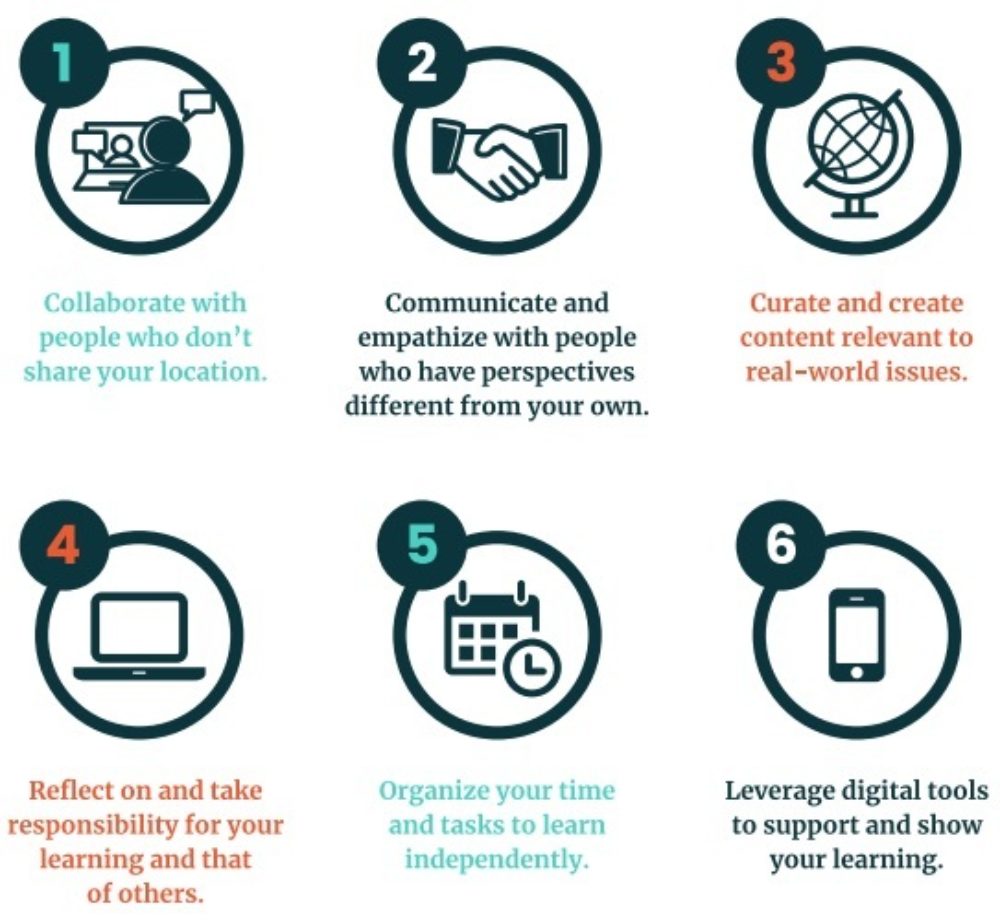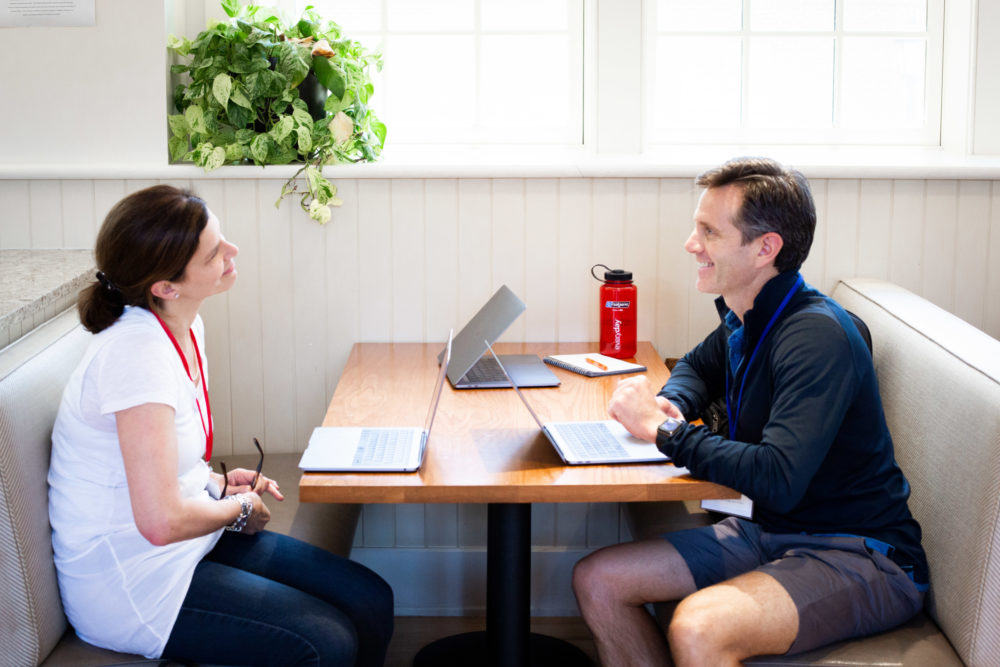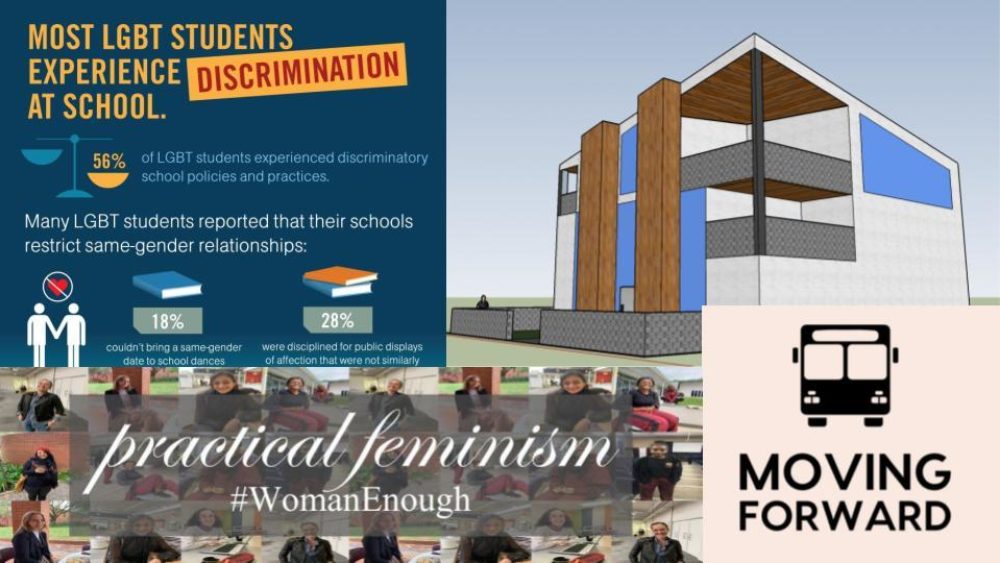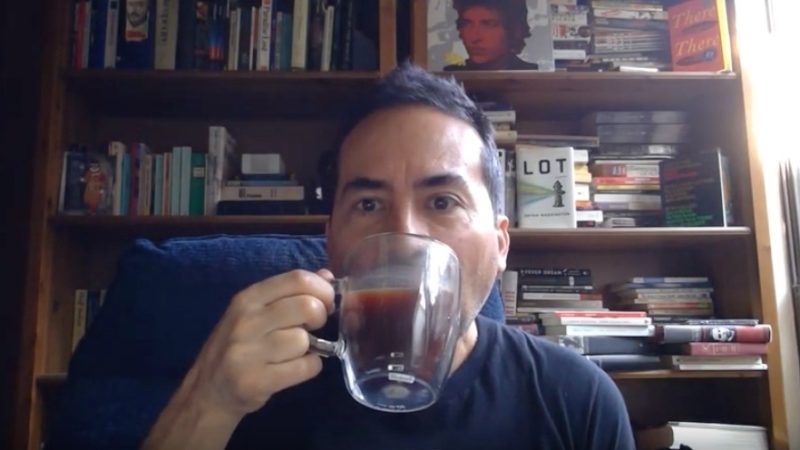2019 Year-in-Review: Five Ways to Empower Students as Learners
“Nothing is more important in fostering growth in students than the degree to which they care.”
This quote from the book Leaders of Their Own Learning captures what motivates the work of GOA’s Student Program: to spark students’ passion for learning. This year, across all of our offerings, we worked with more that 3,000 students. Their contributions to our courses reaffirmed the idea that learners are individuals. They want to learn at their own pace and in their own way. Most of all, they learn best when they explore ideas they are passionate about in partnership with people who nurture and inspire them.
These ideas are what led us to adopt six core competencies in 2015 and move all of our courses to competency-based learning. These skills drive the design of all learning experiences at GOA, no matter which course topic students explore.

We think of ourselves as learners, too, and below are five essential insights we gained from our work in 2019.
Design Relevant, Challenging Experiences
GOA’s six core competencies reflect what we know to be true about high-quality online learning: that it supports the skills students need to become lifelong learners. In pursuit of that goal for all students, GOA’s Student Program expanded its offerings to younger students by launching the Learners for Life Series for grades 7-9.
What did we learn? Our younger students are some of GOA’s strongest planners, self-advocates, and engaged online learners. More than 800 students joined the first two courses in the Learners for Life Series this semester, and they proved that younger students want and need opportunities to explore on their own. As one Episcopal Academy 8th grader said, "Since we have been learning one way most of our lives, it was neat to discover a new way of learning and a new perspective.” Another 8th grader from Christ Church Episcopal School said, “I really liked the concept of learning with people all over the nation, really the world. There was a great sense of community.”
We also expanded our offerings for high school students, focusing on courses that matter in the world beyond school: International Relations, Problem Solving in Engineering and Design, and Race and Society, among others. We added two new flex courses, Write Where You Are and Agreeable Disagreements, that give students a chance to engage with current events as part of their work in classes at their home school. For more on our approach to course design, read Competency-Based Learning in Action: How Do You Promote Student Agency?
Strive for Symmetry in Student and Educator Learning
In their book In Search of Deeper Learning, Jal Mehta and Sarah Fine define symmetrical learning organizations as those that create learning ecosystems for both young people and adults that are rooted in the values of the institution. At GOA, we use competency-based learning to establish symmetry between the ways our students and teachers learn. We have core competencies for students and faculty competencies for GOA teachers, both of which drive 1) how we talk about what people need to know and be able to do 2) how we personalize coaching to build those skills in a way that recognizes their individual needs and 3) how we reflect on our own progress.
For GOA students, our core competencies and learning outcomes serve as a common learning language. Course assignments are explicitly aligned to certain outcomes, rubrics are outcomes-based, and prompts for ongoing reflection target those skills. For more, read Reflection Routines: The Role of Student Voice in Learning.
GOA teachers complete self-assessments and set goals aligned to our faculty competencies, which are also the basis for our coaching and evaluation model. For more on this work, read The Five Essential Skills Teachers Need to Lead Competency-Based Learning.

When everyone in your community is committed to growing and honing relevant skills, you create space for more open and meaningful conversations about how and why we learn.
Prioritize Learning, Not Grading, in Assessments
When GOA member school The White Mountain School asked their students what they wanted their relationship to grades to be, the students said, “a basis on which to know how to improve.” Competency-based learning requires educators to identify what students need to know and be able to do. Such transparency should lead to better learning: students know what the outcomes should be, and they have recommendations for the competencies to use when doing the work. Whether or not you are a school that gives grades (as GOA still does), competency-based assessment requires a commitment to using student work as evidence of learning and to making time for feedback and student reflection that is aligned to competencies and outcomes.
In 2019-2020, we are piloting a revamped assessment policy for students in our courses, one where grades are calculated based in large part on competency-based learning outcomes. Students must show through their work that they are building our core competencies, and teachers must assess and provide feedback aligned to those competencies. Grades on those assignments are weighted for growth and are not averaged over time. Instead, they are calculated to favor the student’s best work, representing where they arrived in competency development, not where they came from. In this way, we are pushing toward a more equitable, research-based grading system that rewards students for growth rather than punishes them for not meeting a generic standard.
Focus on Questions, Not Answers
Competency-based course design emphasizes the genuine interest of each student. Instead of pursuing some interpretation of a particular teacher’s expectations for the “right” answers, students ask questions that reflect their own curiosity. GOA teachers have found that adopting competency-based learning has helped their students to:
- Pursue genuine interests.
- Ask questions that have no clear answers.
- Share vulnerability to build relationships.
- Value the unique contributions of self and others.
- Emphasize process over perfection.
- Reflect on past successes and failures.

Nowhere is this ethos better reflected than in our annual Catalyst Conference, a capstone project that asks students, “How might you use what you’ve learned in your GOA course to spark change in your community?” Student projects range from addressing adolescent mental health, to designing local homeless shelters, to analyzing the relationship between wealth and happiness. It isn’t the topics themselves that drive growth, but rather the open-ended nature of the questions that inspire students to learn deeply and transfer that learning to teach others. Learn more about the 2019 Catalyst Conference award winners.
Prioritize Relationships
Year after year, GOA student surveys show that one metric drives student satisfaction more than any other: the strength of the student's relationship with their teacher. Developing meaningful, productive relationships in a mostly asynchronous online course is the most important work we do. All of our students have a pre-course Zoom video call with their teacher and continue to make synchronous connections with their teacher or with groups of classmates every 7-10 days. Throughout their courses, our teachers leverage technology to demonstrate care: they use video for communication and feedback, they abandon email in favor of chat tools, and they encourage open and public sharing of work, both theirs and students’.
Part of our teachers' work is bringing personality and life into the online space in a way that invites students to do the same. GOA teacher Joel Garza of Greenhill School makes a weekly “Sunday Morning Coffee” video for his Race and Society students. His casual, lighthearted approach offers a model for his students to share both what they do and who they are in order to build class community.
Race & Society: Sunday Morning Coffee
We cannot wait to continue learning from our students and teachers in 2020 and beyond! Want to get involved with GOA’s Student Program? Our summer and flex courses are open to all students. For full access to GOA’s catalog, inquire about becoming a member.



